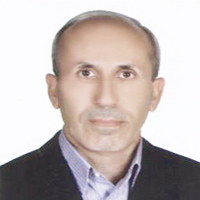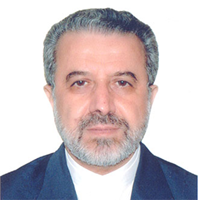Effect of Long-term Continuous Methimazole Treatment of Thyrotoxicosisi: Comparison with Radioiodine
The major complication of radioiodine therapy for thyrotoxicosis is hypoth-yroidism, the long-term management of which is often problematic. In this study, the long-term effects of continuous methimazole (MMI) therapy are investigated.
One hundred and thirty-two patients, aged between 36-66 years, with Graves recurrence, were semi randomly randomized in 2 groups for continuous antithyroid and radioiodine treatment. The number of thyroid dysfunctions in each patient were recorded and serum TSH, FT4, Anti TPO, TRAb, FBS, HOMA IR, and lipid profiles were measured. Bone mineral density and echocar-diography were performed.
There was no significant differences in age, duration of symptoms and thyroid function between the 2 groups. No serious complications occurred in the MMI group and no difference in any of parameters was seen between groups 1 and 2. Goiter rate and anti TPO concentration were higher in group 1 than in group 2. Serum triglycerides and cholesterol were increased in group 2 as compared to group 1. Bone mineral density was more reduced in group 2, especially in the spine. Echocardiography showed diastolic dysfunction in group 2 as compared to group 1. Some parameters in neuro-pschyciatric evaluation were significantly better in the MMI group, as compared to the radioiodine one.
Considering it is a safe treatment and has fewer complications, methimazole is another option for patients with recurrent Graves', who do not wish to use radioiodine.
-
Vitamin D and Anti-thyroid Peroxidase Antibody: Tehran Thyroid Study
FS .Saeidian, F. Sarvghadi, A .Amouzegar, L .Mehran, S. Mahdavi, Y. Mehrabi, F .Azizi, H .Abdi*
Iranian Journal of Endocrinology and Metabolism, -
Association between CRP Gene Polymorphisms and Serum CRP Levels: Tehran Cardiometabolic Genetic Study (TCGS)
Z. Taheryan Amiri, A. Zahedi, M. Jahangiri, S .Masjoodi, M .Zarkesh, M .Akbarzadeh, M. Hedayati, F. Azizi, MS. Daneshpour*
Iranian Journal of Endocrinology and Metabolism, -
fMRI-Based Multi-class DMDC Model Efficiently Decodes the Overlaps between ASD and ADHD
Zahra Zolghadr, Seyed Amirhossein Batouli, Hamid Alavi Majd, Lida Shafaghi, *
Basic and Clinical Neuroscience, May-Jun 2024




